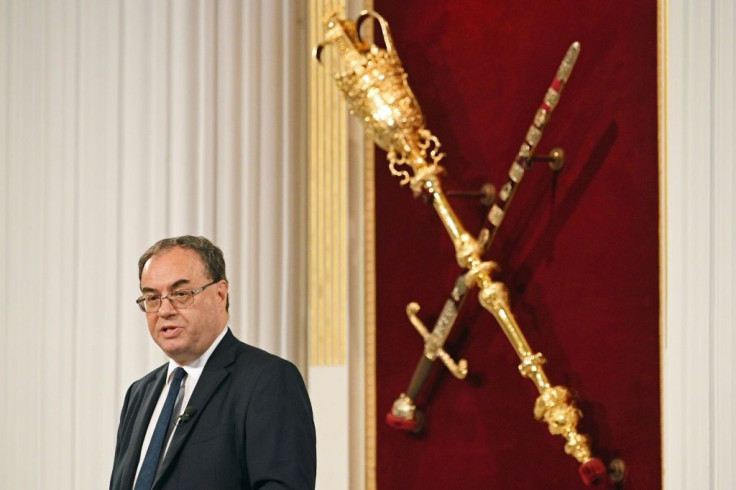Bank Of England Holds Stimulus Despite Soaring Inflation
The Bank of England on Thursday left its record-low interest rate and vast stimulus unchanged, despite warning that inflation would rise more than expected this year on soaring energy costs.
The BoE opted against following the US Federal Reserve, which on Wednesday indicated it would soon start tapering its own emergency aid.
The BoE's nine-strong monetary policy committee (MPC) voted unanimously to hold its key borrowing cost at 0.1 percent, a statement said.
Policymakers voted 7-2 in favour of keeping the bank's quantitative easing (QE), or asset-buying stimulus, at almost ?900 billion ($1.2 trillion, 1.0 trillion euros).
However, developments over the past month had "strengthened" the case for some tightening of monetary policy in the medium term, according to the minutes from the gathering.
The BoE warned that "considerable uncertainties remain" over the outlook, including the end of the UK government's furlough jobs support scheme next week.
Global central banks are grappling with when to withdraw ultra-loose monetary policy and massive stimulus as Covid-blighted economies start to recover.
While BoE tapering could still be some time off, the bank indicated following its latest regular meeting that two of its policymakers "preferred to stop the current asset purchase programme as soon as practical" rather than continuing it until around the end of the year as planned.
"Continuing with asset purchases when CPI inflation was above 3.0 percent and the output gap was closed might cause medium-term inflation expectations to drift up further."
Central banks have embarked on huge purchases of commercial bonds, resulting in massive cash amounts swirling around the world economy.
Some analysts argue that this fuels inflation, which is on the rise in any case after the pandemic caused supply shortages.

The BoE on Thursday also warned that annual inflation was now expected to breach 4.0 percent -- more than double its target level -- in the fourth on high energy and goods prices.
The rate had already spiked in August to a near-decade high of 3.2 percent after the Covid-hit economy reopened.
"Against a backdrop of robust goods demand and continuing supply constraints, global inflationary pressures had remained strong and there were some signs that cost pressures might prove more persistent," read the minutes.
"Oil prices had remained elevated and global shipping costs had continued to rise. Wholesale gas prices had risen substantially across Europe."
Record-high gas prices have sparked fears of rocketing energy bills as demand peaks during the cold northern hemisphere winter.
About 1.5 million consumers in Britain have seen their domestic energy suppliers go bust in recent weeks as a result of chronic turmoil in the market.
The BoE had slashed its key interest rate to the current record-low level as the pandemic erupted in March last year.
At the same time it pumped more massive sums of new cash into the economy.
The bank has so far created ?450 billion under its QE programme since March last year, when Covid-19 prompted Britain's first coronavirus lockdown.
Prior to this it had pumped hundreds of billions of pounds worth of QE into the UK economy over a decade following the 2008-09 global financial crisis and Brexit.
The institution's total emergency stimulus package currently stands at ?895 billion.
© Copyright AFP 2024. All rights reserved.





















